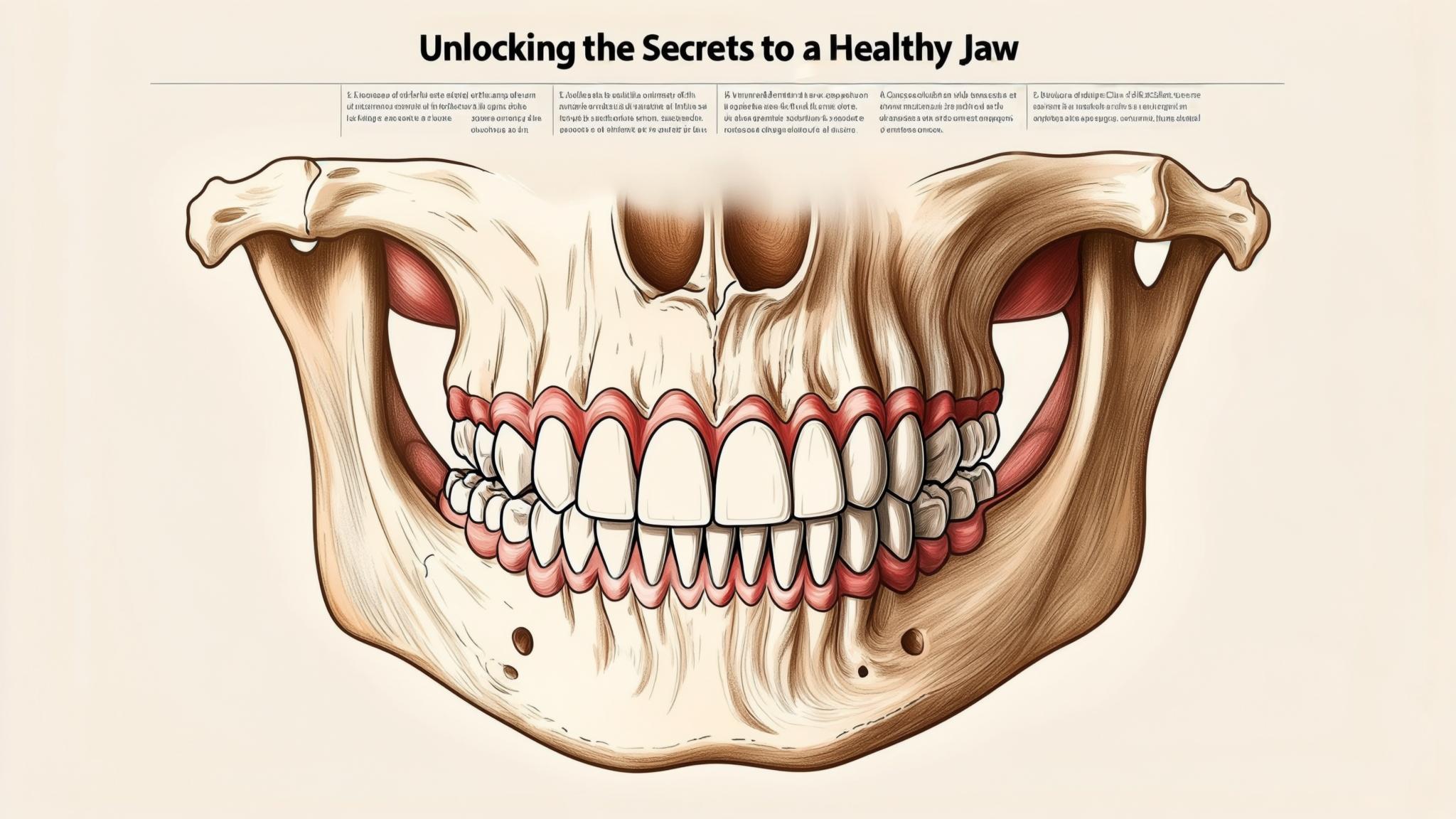Introduction
Regular dental check-ups are more than just an opportunity to get your teeth cleaned and polished. They play a crucial role in maintaining overall dental health, which includes an often-overlooked aspect: jaw health. Many people don't realize that issues with the jaw can have significant implications for their overall well-being. This article aims to shed light on the importance of evaluating jaw health during dental exams and understanding the implications of jaw issues.
Understanding Jaw Health
Anatomy of the Jaw
Your jaw is a marvel of engineering, composed of two main parts: the mandible (lower jaw) and the maxilla (upper jaw). These structures work together to facilitate chewing, speaking, and breathing. At the heart of this system is the temporomandibular joint (TMJ), a hinge that connects your jaw to the temporal bones of your skull. The TMJ allows for the smooth movement of your jaw up and down and side to side, making it one of the most complex joints in your body.
Common Jaw Issues
Jaw problems are more common than you might think. TMJ disorders, bruxism (teeth grinding), jaw clenching, and misalignment can all cause significant discomfort. Symptoms often include pain, clicking or popping sounds when moving the jaw, headaches, and limited jaw movement. These issues can disrupt daily life and, if left untreated, can lead to more severe complications.
The Role of Dental Check-Ups in Jaw Health
Comprehensive Dental Exams
A typical dental check-up is comprehensive, covering much more than just your teeth. It includes an evaluation of your gums, tongue, and yes, your jaw. Dentists look for signs of jaw misalignment, TMJ disorders, and other issues that might not be immediately apparent to you. Evaluating jaw health during these exams is crucial because early detection can prevent more serious problems down the line.
Diagnostic Tools and Techniques
To assess jaw health, dentists use a variety of tools and techniques. X-rays provide a detailed look at the jaw's structure, while physical examinations help identify any abnormalities in movement or pain points. Patient history is also critical, as past injuries or habits like teeth grinding can inform the diagnosis. These tools collectively help dentists pinpoint potential issues early on.
Implications of Neglecting Jaw Health
Consequences of Untreated Jaw Issues
Ignoring jaw problems can lead to severe dental and health issues. Untreated TMJ disorders or bruxism can cause chronic pain, difficulty eating, and even emotional distress due to the persistent discomfort. These issues can significantly impact your quality of life, making it essential to address them promptly.
Connection Between Jaw Health and Overall Health
Jaw health is intricately linked to other health issues. Problems with the jaw can lead to headaches, neck pain, and sleep disorders. Addressing jaw health is not just about dental care; it's about holistic health care. A healthy jaw contributes to your overall well-being, and neglecting it can have far-reaching consequences.
Preventive Measures and Treatment Options
Preventive Care
Maintaining jaw health requires a proactive approach. This includes practicing good dental hygiene, scheduling regular check-ups, and making lifestyle adjustments such as managing stress to reduce teeth grinding. Early detection and intervention are key to preventing more serious issues.
Treatment Options for Jaw Issues
If jaw issues do arise, several treatment options are available. Dental splints, physical therapy, medications, and even surgical options can be employed depending on the severity of the condition. Personalized treatment plans are crucial, as each individual's needs are different.
Conclusion
Jaw health is an integral part of dental check-ups and should not be overlooked. Prioritizing your dental visits and discussing any jaw-related concerns with your dentist can make a significant difference in your overall health. Remember, your jaw is more than just a part of your face—it's a key player in your well-being.
Call to Action
Don't wait for discomfort to dictate your actions. Schedule your next dental check-up today and take a step towards better jaw health. Consider keeping a journal of any jaw-related symptoms to discuss with your dentist during your visit.
References
- American Dental Association: TMJ Disorders
- Mayo Clinic: Bruxism (Teeth Grinding)
- National Institute of Dental and Craniofacial Research: Temporomandibular Joint Disorders (TMJ & TMD)

